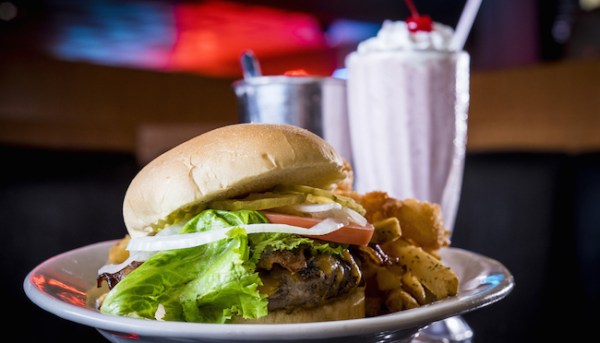
If you ever wondered why the stuff you make at home never fully tastes like the junk you get from your favorite fast food joint, try opening up a chemistry book for tips and tricks.
A recent study suggests that regular fast food diners have a higher concentration of the industrial chemical phthalates in their bodies. Phthalates are typically found in plastic binders, floor, window blinds, and the sort of cheap cosmetics that your hippy friends protest on Facebook. Researchers found that the machines used to process fast food are leaking the phthalates into your chicken patty melt. Even the gloves workers use to protect you from their gross germs are a problem. And nothing’s really being done about it until after we’ve already consumed enough phthalates to poop out plastic.
“Right now there are few choices for individuals who are interested in reducing their exposure, and there’s also not very much regulation of phthalates,” said Ami Zota, assistant professor of environmental and occupational health at the George Washington University Milken Institute School of Public Health. In the U.S., “research happens once they’ve been introduced in commerce, rather than before,” she said.
Researchers also found that diners who eat the most fast food are 39 percent more likely to have phthalates in their system, compared to those who eat fast food in moderation or don’t eat fast food at all. What does this even mean? Nobody knows yet because the effects of phthalates on humans haven’t been thoroughly studied. However, according to Justin Colacino of the University of Michigan School of Public Health in Ann Arbor, it’s pretty devastating to lab animals.
“Phthalates are of concern because animal and epidemiology studies have linked exposure to a range of adverse health outcomes, from toxicity to developing male reproductive systems, neurodevelopmental issues, miscarriage, and preterm birth,” Colacino recently told Reuters.
Despite the link, Bloomberg notes The American Chemistry Council says phthalates are all good, determining that 10 years of research points to “no risk to human health at typical exposure levels, despite phthalates being used in many products.” However, in 2102, the EPA noted that it was “concerned about phthalates because of their toxicity and the evidence of pervasive human and environmental exposure to them.”
So, if you’re worried about your reproductive system, assistant professor Zota advises to eat organic, and when you can’t, eat fresh veggies. Which, as we’ve pointed out time and again, is just solid advice all the way around.






